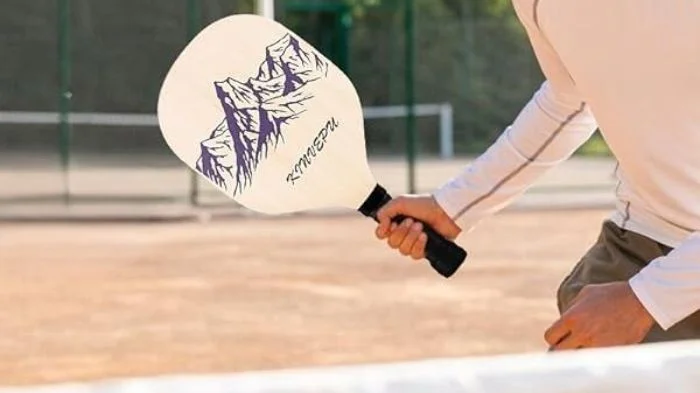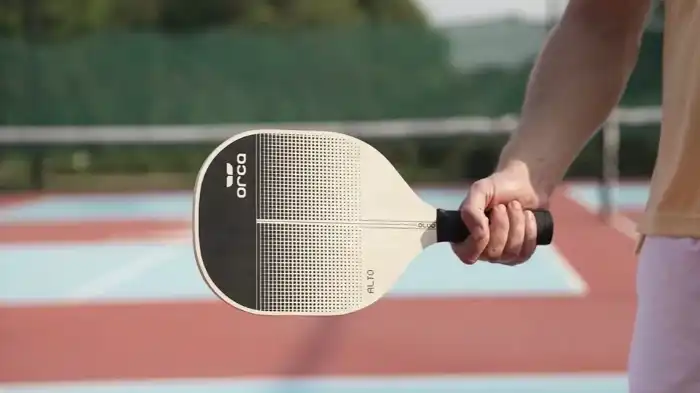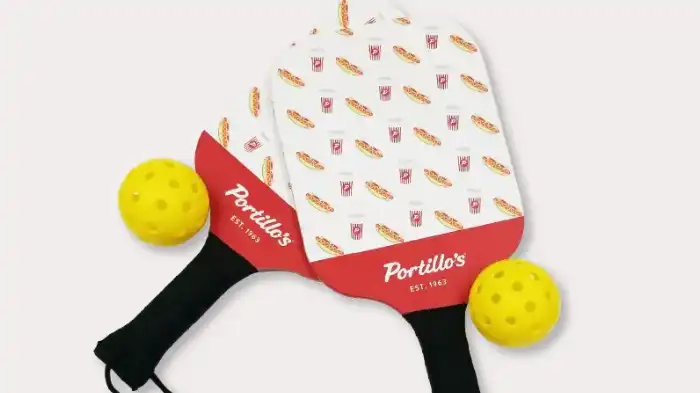When it comes to pickleball, one of the most pivotal choices you’ll make as a player is selecting the perfect paddle. Wood pickleball paddles have been around since the early days of the sport, and they continue to be a popular choice for many players. Many pickleball players or enthusiasts ask, “Are wood pickleball paddles good?”. In this blog post, we will answer the question by explaining the pros and cons of wood pickleball paddles.
Pros of Wood Pickleball Paddles
Wood paddles offer several advantages that make them an appealing option for players:
1. Traditional Feel and Sound
Wood paddles give players a classic experience that many enjoy. The natural material adds a nostalgic touch, bringing a sense of tradition to the game. When the ball hits a wooden paddle, it makes a satisfying and distinct sound, creating a unique playing experience.
2. Affordable Option
Compared to other paddle materials, wood paddles are generally more affordable. This affordability makes them an attractive choice for recreational players or those on a budget. Wood paddles offer decent performance without breaking the bank, allowing players to enjoy the game without a significant financial investment.

3. Control and Touch
Wood paddles are known for their excellent control and touch. The natural properties of wood, such as its softness and flexibility, allow for precise shot placement and subtle spin control. This level of control is particularly beneficial for players who prioritize finesse and strategy in their gameplay.
4. Durability
Wood paddles are known for their sturdiness and resistance to wear and tear. They can withstand a fair amount of use and abuse, making them suitable for recreational play and beginners who may not be as gentle with their equipment.
Cons of Wood Pickleball Paddles
However, wood paddles also come with certain drawbacks that players should consider:
1. Limited Power
Compared to paddles made from composite or graphite materials, wood paddles generally offer less power. Due to the inherent properties of wood, these paddles may not generate the same level of speed and force behind shots. This limitation can be a disadvantage when playing against opponents with more powerful gear, as it may be more challenging to match their shots.
2. Weight and Balance Variations
When using wood paddles, it is essential to note that weight and balance can vary significantly between different models. This lack of consistency can affect players’ ability to find a paddle that suits their preferred playing style. It may require some trial and error to find a wood paddle with the right weight and balance for optimal gameplay.
3. Heavier Weight
Wood paddles are typically heavier compared to other materials. This can affect the player’s maneuverability and swing speed, making it somewhat more challenging to generate power and execute quick shots. However, some players appreciate the added weight as it can provide more stability and control in certain situations.

Frequently Asked Questions
Yes, wood pickleball paddles are often a good choice for beginners. They provide a traditional feel, precise control, and are typically more affordable, making them an excellent option for those just starting in the sport. Beginners can enjoy the game without a significant financial investment while developing their skills with wood paddles.
Wood paddles tend to be less powerful than composite or graphite paddles. While they’re suitable for casual or recreational play, competitive players who depend on hitting powerful shots might favor other paddle materials that give them that extra advantage.
Wood paddles may struggle to match the power of composite or graphite paddles. They are better suited for players who prioritize finesse and control over sheer power.
Wood paddles can be affected by changes in humidity and temperature, so it is essential to store them properly to maintain their performance. Consider covering them or keeping them in a climate-controlled environment.
The lifespan of a wood paddle depends on factors like usage, care, and the quality of the paddle. With proper maintenance, a wood paddle can last several years.
Conclusion
In conclusion, wood pickleball paddles have their unique advantages and drawbacks. They offer a traditional feel, affordability, control, and durability, making them a good choice for beginners and recreational players. However, they may not match the power of composite or graphite paddles and can have variations in weight and balance. So, the question “Are wood pickleball paddles good?” doesn’t have a one-size-fits-all answer. It depends on your playing style and preferences.

